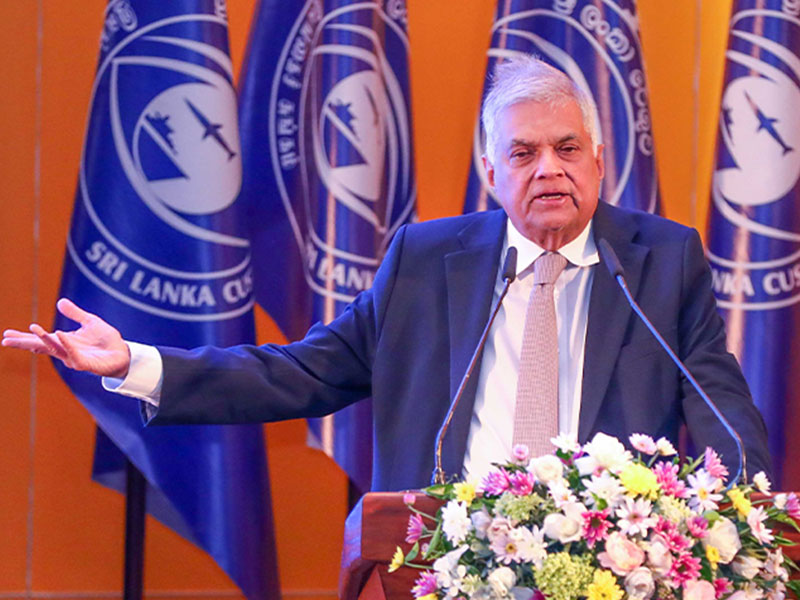Colombo, Sri Lanka: In a bid for broader political consensus, Sri Lankan President Ranil Wickremesinghe has extended an invitation to the International Monetary Fund (IMF) Managing Director to engage in a dialogue with all political party leaders in Parliament. This dialogue would focus on the implementation of the IMF agreement, which is crucial for the country’s economic recovery.
Wickremesinghe made the announcement during the International Customs Day celebrations, highlighting the importance of collective participation in navigating the challenges posed by the agreement. He acknowledged the limitations of the pact but stressed the need for collaborative efforts to ensure its successful implementation.
Sri Lanka secured a bailout package from the IMF in exchange for debt restructuring and revenue-generation measures. Wickremesinghe emphasized the gravity of the agreement, stating it’s not something to “simply walk away from.” He lamented the fleeting nature of political engagement, drawing a comparison to “papadam” (a thin lentil cracker) that is quickly consumed and forgotten. He urged political parties to rise above this pattern and focus on the long-term development of the country, especially with the upcoming elections this year.
Wickremesinghe further acknowledged the need for potential amendments to the agreement but emphasized the importance of working within its existing framework. He also criticized the “politics of promises” that have contributed to the economic crisis and called for comprehensive development plans from all political parties.
Apart from political engagement, Wickremesinghe commended the Customs Department for its revenue contributions in 2023 and urged further efficiency improvements to bolster national income. He acknowledged the department’s historical significance, tracing its roots back to ancient Sri Lanka and emphasizing its vital role in national prosperity.
President Wickremesinghe’s initiative to involve all political parties in the implementation of the IMF agreement demonstrates a recognition of the need for broad consensus in tackling Sri Lanka’s economic challenges. The success of this dialogue and the subsequent efforts to navigate the agreement will be crucial in determining the country’s path towards recovery.







